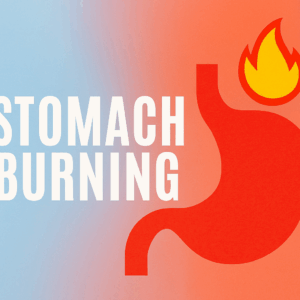As anyone who has experienced it knows, acid reflux can be excruciating. It often disrupts sleep and, if left untreated, can lead to serious health issues such as tooth decay and even esophageal cancer.
If you’re still relying only on conventional treatments, it may be time to reconsider. Research shows that some common acid reflux medications—like Zantac—have been linked to an increased risk of gastrointestinal cancers. Others, such as Tagamet and Pepcid, can cause side effects and even interfere with other medications.
The good news? You don’t have to choose between risky pharmaceuticals and constant discomfort. Natural remedies and lifestyle changes can provide both relief and prevention. Here’s what you need to know.
What Is Acid Reflux?

Acid reflux occurs when stomach acid flows back into your esophagus—the narrow tube connecting your mouth to your stomach. Normally, the esophageal sphincter allows food to pass into the stomach and then closes to block acid from coming back up. When this valve doesn’t function properly, acid reflux occurs, leading to that familiar burning sensation known as heartburn.
Common symptoms of acid reflux include:
- Burning in the chest or throat
- Coughing
- A hoarse voice
- An acidic taste in the mouth
- Pain when bending over
- Pressure behind the sternum
- Bad breath
⚠️ Because acid reflux shares symptoms with a heart attack, always seek medical help if you experience severe chest pain, jaw or back pain, or shortness of breath.
How to Prevent Acid Reflux Naturally
A holistic approach to acid reflux focuses on lifestyle changes, restoring healthy stomach acid levels, and supporting esophageal function.
1. Work with a Qualified Practitioner
Suppressing stomach acid for too long can actually worsen reflux. Restoring proper acid production with the help of a practitioner can be transformative. This often includes dietary adjustments, remedies such as apple cider vinegar, and gradually tapering off proton pump inhibitors (PPIs). Supplements like hydrochloric acid (HCL), digestive enzymes, zinc, and B12 may also help improve digestion. Keep in mind that certain medications—like painkillers and blood pressure drugs—can aggravate reflux.
2. Identify Trigger Foods and Adjust Your Diet
Keeping a food diary can help you pinpoint your personal triggers. Common culprits include:
- Mint
- Carbonated drinks (including sparkling water)
- Alcohol
- Spicy foods
- Deep-fried foods
- Greasy foods
- Chocolate
- Citrus fruits
- Tomatoes and tomato sauces
- Cheese
- Processed snacks
- Combination of above like greasy spicy food in tomato sauce plus alcohol and a soft drink!
On the other hand, diets rich in whole foods and healthy fats—like the Mediterranean diet—are associated with fewer reflux symptoms.
Natural remedies for flare-ups include:
- Ginger: Anti-inflammatory and soothing.
- Apple cider vinegar: May balance stomach acid (use diluted and in small amounts).
- Baking soda: Neutralizes stomach acid (only in small, occasional doses).
3. Quit Smoking
Smoking weakens the esophagus and worsens reflux. Studies show that people who quit smoking are three times more likely to see improvement.
4. Maintain a Healthy Weight
Excess belly fat increases abdominal pressure, raising the risk of acid reflux. Even modest weight loss can reduce symptoms significantly.
5. Improve Sleep Habits
- Elevate your head about 8 inches while sleeping.
- Try sleeping on your right side for added protection.
- Avoid eating late at night or lying down right after meals.
6. Reduce Stress
Nearly half of reflux sufferers report stress as a major trigger. Stress reduction techniques such as meditation, deep breathing, yoga, and mindful walking can ease symptoms. Just be mindful of yoga poses that compress the abdomen.
Final Thoughts
You don’t have to live with painful acid reflux—or risk long-term health issues from certain medications. By making simple but powerful lifestyle changes, you can find real relief and prevent flare-ups naturally.
If you’re ready to take control of your digestive health, let’s work together to find the best natural plan for you.
Sources
- McGwin G. The Association between Ranitidine Use and Gastrointestinal Cancers. Cancers (Basel). 2020 Dec 23;13(1):24. doi 10.3390/cancers13010024. PMID: 33374592; PMCID: PMC7793066.
- https://www.medicalnewstoday.com/articles/h2-blockers#types
- Richter JE, Rubenstein JH. Presentation and Epidemiology of Gastroesophageal Reflux Disease. Gastroenterology. 2018 Jan;154(2):267-276. doi: 10.1053/j.gastro.2017.07.045. Epub 2017 Aug 3. PMID: 28780072; PMCID: PMC5797499.
- Chang P, Friedenberg F. Obesity and GERD. Gastroenterol Clin North Am. 2014 Mar;43(1):161-73. doi 10.1016/j.gtc.2013.11.009. Epub 2013 Dec 27. PMID: 24503366; PMCID: PMC3920303.
- Haruma K, Kinoshita Y, Sakamoto S, Sanada K, Hiroi S, Miwa H. Lifestyle factors and efficacy of lifestyle interventions in gastroesophageal reflux disease patients with functional dyspepsia: primary care perspectives from the LEGEND study. Intern Med. 2015;54(7):695-701. doi 10.2169/internalmedicine.54.3056. Epub 2015 Apr 1. PMID: 25832928.
- Person E, Rife C, Freeman J, Clark A, Castell DO. A novel sleep positioning device reduces gastroesophageal reflux: a randomized controlled trial. J Clin Gastroenterol. 2015;49(8):655-9. doi:10.1097/MCG.0000000000000359
- Al-Abri SA, Olson KR. Baking soda can settle the stomach but upset the heart: case files of the Medical Toxicology Fellowship at the University of California, San Francisco. J Med Toxicol. 2013 Sep;9(3):255-8. doi 10.1007/s13181-013-0300-4. PMID: 23591957; PMCID: PMC3770998.
- Morozov S, Isakov V, Konovalova M. Fiber-enriched diet helps to control symptoms and improves esophageal motility in patients with non-erosive gastroesophageal reflux disease. World J Gastroenterol. 2018 Jun 7;24(21):2291-2299. doi: 10.3748/wjg.v24.i21.2291. PMID: 29881238; PMCID: PMC5989243.
- Zalvan CH, Hu S, Greenberg B, Geliebter J. A Comparison of Alkaline Water and Mediterranean Diet vs Proton Pump Inhibition for Treatment of Laryngopharyngeal Reflux. JAMA Otolaryngol Head Neck Surg. 2017 Oct 1;143(10):1023-1029. doi: 10.1001/jamaoto.2017.1454. PMID: 28880991; PMCID: PMC5710251.
- Kaswala D, Shah S, Mishra A, Patel H, Patel N, Sangwan P, Chodos A, Brelvi Z. Can yoga be used to treat gastroesophageal reflux disease? Int J Yoga. 2013 Jul;6(2):131-3. doi 10.4103/0973-6131.113416. PMID: 23930033; PMCID: PMC3734640.


